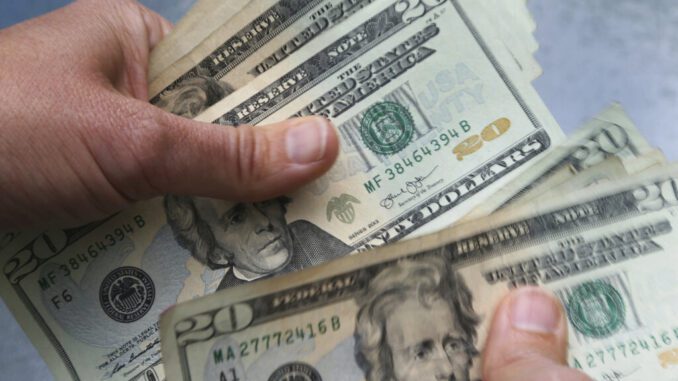
Social Security is a bad deal for everyone. No one born after World War II will receive more in benefits than they paid in payroll taxes into Social Security. It is as if everyone is being forced to financially discriminate against their own self-interest and invest in something they never would do on their own.
There’s no getting around it. It is a math problem, not a difference of political philosophy policy problem.
Would you invest in $1,000 worth of cryptocurrency today if you knew for sure it was going to be worth $500 in 2062 no matter what?
Of course not. But that is exactly what everyone under the age of 30 working today is being forced to do with each and every pay check they receive ― 6.2% of their salary is deducted automatically on a pre-tax basis and matched by 6.2% from their employer on a flat tax rate basis.
High-income wage earners are taxed exactly the same rate as minimum wage earners. Social Security is the most highly regressive tax in American history. Close to 75% of all taxpayers pay far more in payroll taxes than they do in income tax. Only taxpayers who report $200,000 or more in income pay significantly higher amounts of income tax than payroll tax.
The injustice of Social Security can be seen by anyone who wants to take a clear-eyed look at it. Instead of qualifying for a measly average monthly stipend of $1658, moderate wage-earners over the past 40 years could retire today with a nest egg of anywhere between $800,000 to $3 million had Social Security been reformed properly in the 1980’s.
SS “contributions” (sic) i.e. taxes, are not tax-deductible as are state and local taxes. A taxpayer can deduct the cost of every other retirement-related financial vehicle from IRAs to 401ks to SEPP plans ― but not their share of Social Security payroll tax (unless they are self-employed in which case they can deduct half of the SS tax, 6.2%).
When a taxpayer retires, they have to pay taxes on 85% of their SS benefits above a certain level. Taxed on the way in; taxed on the way out. SS is not a very good retirement plan from the tax front.
SS funds do not magically accumulate in a fund set aside solely for each taxpayer. If a taxpayer dies one day before they are eligible to receive SS benefits, no one gets any of their accumulated SS money back ― not the deceased, not the spouse, none of their dependents and not their extended family or church or charitable foundation through a will or trust. Nothing, Nada. It is as if their entire lifelong contributions of $450,000 or so went for nothing to benefit them or their families. All of it went to seniors who were then of retirement age while they were slaving away at their job.
The racial imbalance in Social Security benefits is staggering. Black males live an average of four years less than the average white male. Many die at age 64 ― and receive nothing in SS benefits. Some goes to their spouse in an abbreviated payment but no lump sum transfers to a black man’s heirs to help them buy a house, go to college or invest in their future.
According to Eugene Steuerle of the Urban Institute, a couple who each earned the average wage during their careers and retired in 1990 would have paid $316,000 in Social Security taxes, but collected $436,000 in benefits, all calculated on an inflation-adjusted basis. Had the same average wage-earning couple turned 65 in 2010, however, they would have paid $600,000 in taxes but could only expect to collect just $579,000 during retirement, the first such year where the paid-in tax/benefits received ratio was inverted.
For that same couple in their late 40s today, they will have paid $808,000 in Social Security taxes by the time they retire in 2040. They can expect to get back only $703,000 in benefits.
The best solution, and always has been, is to convert Social Security to a pure retirement system like a 401k for each enrollee. Andrew Biggs of the American Enterprise Institute says 19.6% of all retirees depend on Social Security for 90% of their income. Double their monthly benefits overnight and pay for it by means-testing payments to wealthy retirees who don’t need Social Security as part of a deal to convert Social Security to a private investment program that will benefit every American taxpayer alive today going forward forever.
100% of the electorate is a large voting bloc. A smart political party will figure out how to capitalize on this amazing opportunity and dominate American politics for a long time.



